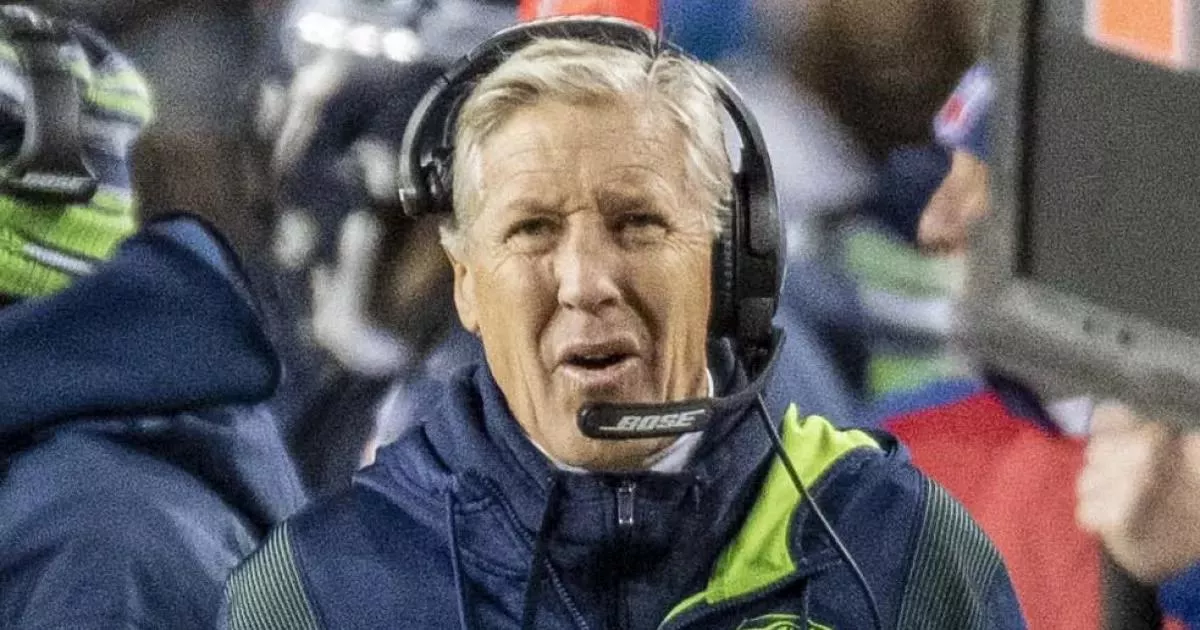Peter Clay Carroll is an American football coach. He is the head coach for the Las Vegas Raiders of the NFL. Before that, he coached USC, the New York Jets, New England Patriots, and Seattle Seahawks. He won a college football national championship with USC and Super Bowl XLVIII with the Seahawks, making him one of only three coaches to win both.
September 15, 1951: Peter Clay Carroll Born
On September 15, 1951, Peter Clay Carroll was born. He is an American professional football coach.
1969: Athlete of the Year
In 1969, Pete Carroll was named Athlete of the Year at his high school.
1971: All-Pacific Coast Athletic Association Honors
In 1971, Pete Carroll earned All-Pacific Coast Athletic Association honors while playing free safety for the University of the Pacific Tigers.
1973: Bachelor of Science in Business Administration
In 1973, Pete Carroll earned his Bachelor of Science degree in Business Administration from the University of the Pacific.
1976: Earned Master's Degree
In 1976, Pete Carroll earned a Master's degree in physical education and a secondary teaching credential while working as a graduate assistant at University of the Pacific.
1977: Graduate Assistant at Arkansas
In 1977, Pete Carroll worked as a graduate assistant at the University of Arkansas, working with the secondary.
1978: Won the Orange Bowl
In 1978, Pete Carroll's team, the Arkansas Razorbacks, won the Orange Bowl.
1980: Defensive Coordinator at North Carolina State University
In 1980, Pete Carroll became the defensive coordinator and secondary coach at North Carolina State University.
1983: Assistant Head Coach and Offensive Coordinator at Pacific
In 1983, Pete Carroll became the assistant head coach and offensive coordinator at the University of the Pacific.
1983: Last College Coaching before USC
Pete Carroll had not coached in the college ranks since 1983 before becoming the Trojans' head coach.
1984: Defensive Backs Coach for the Buffalo Bills
In 1984, Pete Carroll entered the NFL as the defensive backs coach for the Buffalo Bills.
1985: Defensive Backs Coach for the Minnesota Vikings
In 1985, Pete Carroll moved to the Minnesota Vikings as the defensive backs coach.
1989: Candidate for Stanford Head Coaching Position
In 1989, Pete Carroll was a candidate for the head coaching position at Stanford University, but the position went to Dennis Green.
1990: Defensive Coordinator for the New York Jets
From 1990, Pete Carroll served as the defensive coordinator for the New York Jets under Bruce Coslet.
1992: Candidate for Vikings' Head Coach Position
In 1992, Pete Carroll was a serious candidate for the Vikings' head coach position, but he did not get the job.
1993: End of Defensive Coordinator position for the New York Jets
In 1993, Pete Carroll's tenure as the defensive coordinator for the New York Jets concluded.
1994: Head Coach of the New York Jets
In 1994, Pete Carroll became the head coach of the New York Jets and was later fired after one season.
1995: Defensive Coordinator for San Francisco 49ers
In 1995, Pete Carroll became the defensive coordinator for the San Francisco 49ers.
1995: Inducted into Pacific Athletic Hall of Fame
In 1995, Pete Carroll was inducted into the Pacific Athletic Hall of Fame.
1996: Start of USC dominance
In July 2007, ESPN.com named USC its #1 team of the decade for the period between 1996 and 2006, primarily citing the Trojans' renaissance and dominance under Carroll.
1997: Head Coach for the New England Patriots
In 1997, Pete Carroll became the head coach for the New England Patriots.
1997: USC Tried to Recruit Carroll
In 1997, while Pete Carroll was coaching the Patriots, USC tried to recruit him to be their head coach, but he was unable to take the position.
1998: Lost Wild Card Playoff Round
In 1998, Pete Carroll's Patriots team lost in the wild card playoff round.
1999: Fired by the New England Patriots
In 1999, Pete Carroll was fired as head coach of the New England Patriots.
1999: End of Patriots coaching
In 1999, Pete Carroll's tenure as head coach for the New England Patriots concluded.
December 15, 2000: Named Trojans' Head Coach
On December 15, 2000, Pete Carroll was named the head coach of the USC Trojans, signing a five-year contract.
2000: Consultant for Pro and College Teams
In 2000, Pete Carroll spent the year as a consultant for professional and college teams, did charitable work for the NFL, and wrote a column for CNNSI.com.
September 29, 2001: Loss to Stanford Cardinal
On September 29, 2001, During Pete Carroll's first year as USC coach, the team lost to the Stanford Cardinal 21-16.
October 13, 2001: Began 35-game winning streak at the Coliseum
On October 13, 2001, USC, coached by Pete Carroll, began a 35-game winning streak at the Coliseum with a 48–17 win over the Arizona State Sun Devils.
2001: USC Head Coach
In 2001, Pete Carroll became the head coach for USC.
2001: Slow start to USC coaching career
In 2001, Pete Carroll's first USC team started the season with a 2-5 record. Sportswriters considered the Trojans a dying program.
2002: Significant raise
After the 2002 season, Pete Carroll received a significant raise from USC.
2003: Start of 34 straight game win
In 2003, Pete Carroll's team started a then-school record 34 straight games win streak.
2003: USC Excluded from National Championship Game
In 2003, USC was excluded from the National Championship Game despite being ranked #1 in both the Associated Press (AP) Poll and the ESPN/USA Today Coaches Poll, generating controversy.
2004: Increased earnings and BCS title
During the 2004 season, Pete Carroll earned close to $3 million, with the season culminating in USC winning the BCS title in January 2005.
2004: Grantland Rice Trophy taken back
On August 26, 2010, the Football Writers Association of America announced it would take back USC's 2004 Grantland Rice Trophy and leave that year's award vacant.
2004: Forfeiture of victories
On June 10, 2010, the NCAA announced sanctions against the USC football program including forfeiture of some football victories from 2004 to 2005 (a season which had included winning the Bowl Championship Series title).
2004: Stripped of the 2004 Football Writers Assn. of America national championship
The Trojans were asked to return the Grantland Rice Trophy after being stripped of the 2004 Football Writers Assn. of America national championship
January 2005: USC wins BCS title
In January 2005, Pete Carroll's USC team won the Bowl Championship Series (BCS) title.
December 2005: Contract extension
In December 2005, Pete Carroll agreed to a contract extension with USC.
2005: Tying Holmgren's record
During the 2013 season, Carroll's Seahawks finished with a 13-3 record, tying Mike Holmgren's 2005 season for the best in Seattle history and earning the number one seed in the NFC.
2005: BCS National Championship at the Orange Bowl
In 2005, Pete Carroll won a BCS national championship at the Orange Bowl with USC, though the title was later vacated.
2005: End of 34 straight game win
In 2005, Pete Carroll's team ended their 34 straight games win streak.
2005: Forfeiture of victories
On June 10, 2010, the NCAA announced sanctions against the USC football program including forfeiture of all team victories from the undefeated 2005–06 regular season.
2006: Rose Bowl game against Texas Longhorns
In 2006, Pete Carroll's team played against the Texas Longhorns in the Rose Bowl for the national championship.
2006: End of USC dominance
In July 2007, ESPN.com named USC its #1 team of the decade for the period between 1996 and 2006, primarily citing the Trojans' renaissance and dominance under Carroll.
July 2007: USC named #1 team of the decade by ESPN.com
In July 2007, ESPN.com named USC its #1 team of the decade for 1996-2006, citing the Trojans' dominance under Carroll.
September 22, 2007: Final Victory in Coliseum Winning Streak
On September 22, 2007, USC's final victory in a 35-game winning streak at the Coliseum was a 47–14 win over the Washington State Cougars.
October 6, 2007: End of Coliseum Winning Streak
On October 6, 2007, USC's 35-game winning streak at the Coliseum ended with a 24–23 loss to the Stanford Cardinal.
2007: Total Compensation
In the 2007 fiscal year, Pete Carroll's total compensation, including pay and benefits, amounted to $4,415,714.
May 2008: Carroll Defined the First 10 Years of the BCS Era
In May 2008, Pete Carroll was named the coach who did the most to define the first 10 years of the BCS Era.
2008: ESPN.com Named Carroll's Hiring Number 1
In 2008, ESPN.com named Pete Carroll's hiring number 1 in a list of the Pac-10's top ten moments of the BCS era.
2008: Carroll on Not Controlling National Championships
In 2008, Pete Carroll expressed his mindset on focusing only on what they can control, citing the 2003 season when they were ranked #1 but then fell to #3, emphasizing the lack of control over national championships.
April 2009: Inducted into Redwood High School Athletic Hall of Fame
In April 2009, Pete Carroll was inducted into the charter class of the Redwood High School Athletic Hall of Fame.
2009: Rumors of Carroll taking Seahawks job
After the Seattle Seahawks fired head coach Jim L. Mora after the 2009 season, Pete Carroll was rumored to be in the running for the job.
2009: End of USC coaching
In 2009, Pete Carroll's tenure as head coach for USC concluded.
January 8, 2010: Carroll nearing Seahawks deal
On January 8, 2010, reports indicated that Pete Carroll was on the verge of being hired as the head coach of the Seattle Seahawks, with both parties finalizing contract details.
January 9, 2010: Carroll Agrees to Seahawks Contract
On the morning of January 9, 2010, Pete Carroll reportedly reached an agreement with the Seattle Seahawks on a five-year contract to become their head coach.
January 11, 2010: Carroll Leaves USC for Seattle Seahawks
On January 11, 2010, Pete Carroll left USC to become the head coach of the Seattle Seahawks, signing a 5-year, $33 million contract. He had informed his players the previous evening about his resignation from USC.
June 9, 2010: Carroll appeared before NCAA Committee on Infractions
On June 9, 2010, it was reported that Pete Carroll, along with other USC officials, had appeared before the NCAA Committee on Infractions in February.
June 10, 2010: Carroll reacts to USC sanctions
On June 10, 2010, Pete Carroll expressed shock and disappointment in the NCAA's findings regarding sanctions against USC.
August 26, 2010: FWAA takes back USC's 2004 Grantland Rice Trophy
On August 26, 2010, the Football Writers Association of America announced it would take back USC's 2004 Grantland Rice Trophy and leave that year's award vacant. USC athletic director Pat Haden stated USC would return the trophy.
2010: Head Coach for the Seattle Seahawks
In 2010, Pete Carroll became the head coach for the Seattle Seahawks.
2010: Hired as Seahawks head coach
In 2010, Pete Carroll returned to the NFL and was hired as the head coach of the Seattle Seahawks.
2010: Seahawks Roster Overhaul and Playoff Berth
In the 2010 season, Pete Carroll significantly altered the Seahawks roster, making over 200 transactions. The team finished with a 7-9 record but won the NFC West, becoming the first team with that record to win a division title. They then upset the New Orleans Saints in the playoffs before losing to the Chicago Bears.
2011: Another 7-9 Season for the Seahawks
In 2011, Pete Carroll again coached the Seahawks to a 7–9 record, but it was not enough to secure a playoff spot.
2012: Winning Season and Controversial Game
In 2012, Pete Carroll led the Seahawks to an 11–5 record with rookie quarterback Russell Wilson, marking Carroll's first winning season for the team. A controversial call during a game against the Green Bay Packers ignited national outrage. The Seahawks made the playoffs, winning their Wild Card game before losing in the Divisional Round to the Atlanta Falcons.
2013: Seahawks finish as #1 seed
During the 2013 season, Carroll's Seahawks finished with a 13-3 record, tying Mike Holmgren's 2005 season for the best in Seattle history and earning the number one seed in the NFC. They advanced to the Super Bowl after defeating the San Francisco 49ers in the NFC Championship Game.
February 2, 2014: Seahawks Win Super Bowl XLVIII
On February 2, 2014, Pete Carroll led the Seattle Seahawks to their first Super Bowl win in franchise history, defeating the Denver Broncos 43-8 in Super Bowl XLVIII. He became one of the few coaches to win both an NCAA championship and a Super Bowl.
July 2014: Induction into USC Athletic Hall of Fame
In July 2014, Pete Carroll was announced as a member of the 2015 USC Athletic Hall of Fame class.
2014: Carroll reflects on NCAA investigation
In 2014, during a visit to USC, Pete Carroll stated that the NCAA's investigation into USC was dealt with poorly, irrationally, and with too much emotion instead of facts.
2014: Seahawks' Quest to Repeat as Super Bowl Champions
In 2014, the Seahawks began their quest to repeat as Super Bowl champions, starting with a victory over the Green Bay Packers and later defeating the Denver Broncos in overtime. After a team meeting following a Week 11 loss, the Seahawks finished the regular season 6–0 and reached their second straight NFC Championship.
February 1, 2015: Seahawks Lose Super Bowl XLIX
On February 1, 2015, Pete Carroll's Seahawks lost Super Bowl XLIX to the New England Patriots, 28-24, after a controversial play call near the end of the game.
2015: Carroll discusses the bitterness surrounding USC's success
In 2015, Pete Carroll reflected that USC's uncommon success and fun may have rubbed people the wrong way, leading to bitterness.
2015: Induction into USC Athletic Hall of Fame
In July 2014, Pete Carroll was announced as a member of the 2015 USC Athletic Hall of Fame class.
July 25, 2016: Contract Extension with Seahawks
On July 25, 2016, Pete Carroll signed a three-year contract extension with the Seattle Seahawks, securing his position with the team through the 2019 season.
2016: Seahawks clinch division title
In 2016, Pete Carroll's Seahawks won their first division title since 2016, before losing to the Los Angeles Rams in the Wild Card Round.
2018: Winningest Seahawks Coach
In 2018, Pete Carroll became the Seattle Seahawks' winningest coach.
2019: Contract Extension with Seahawks
Carroll's contract extension in 2016 kept him with the Seattle Seahawks through the 2019 season.
September 21, 2020: NFL Fine for Mask Violation
On September 21, 2020, Pete Carroll was fined US$100,000 by the NFL for not properly wearing a face mask during a Week 2 game, as required during the COVID-19 pandemic.
November 8, 2020: Contract Extension with Seahawks
On November 8, 2020, Pete Carroll agreed to a four-year contract extension with the Seattle Seahawks.
2023: Stepped down as Seahawks head coach
Following the 2023 season, Pete Carroll stepped down as head coach of the Seattle Seahawks to take on an advisory position with the team for one year.
2023: Carroll defends Super Bowl play call
In 2023, Pete Carroll defended his controversial play-call during Super Bowl XLIX, despite previously having taken accountability for the team's failure to win that game.
2023: End of Seahawks coaching
In 2023, Pete Carroll's tenure as head coach for the Seattle Seahawks concluded.
January 10, 2024: Carroll Steps Down as Seahawks Head Coach
On January 10, 2024, Pete Carroll and the Seattle Seahawks mutually agreed that he would step down from his head coaching role.
January 25, 2025: Carroll Hired as Raiders Head Coach
On January 25, 2025, Pete Carroll was hired as the head coach of the Las Vegas Raiders, marking his departure from the Seattle Seahawks after 15 years.
March 13, 2025: Raiders Trade for Geno Smith
On March 13, 2025, the Las Vegas Raiders traded for Geno Smith, reuniting Pete Carroll with his former Seahawks quarterback.
2025: Head coach of the Raiders
In 2025, Pete Carroll left the Seahawks organization and became the head coach of the Raiders.
Mentioned in this timeline

Basketball is a team sport played on a rectangular court...
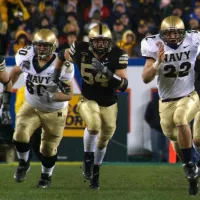
College football is a popular amateur sport in the United...
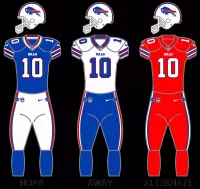
The Buffalo Bills are an NFL team representing the Buffalo...
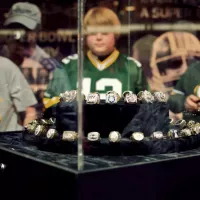
The Super Bowl is the annual championship game of the...

San Francisco is a major commercial financial and cultural hub...

Las Vegas Nevada's most populous city and the seat of...
Trending

36 minutes ago Google Maps to fully function in South Korea after data agreement.
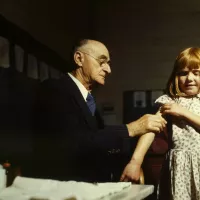
2 hours ago CDC Panel to Discuss COVID-19 Vaccine Injuries Following RFK Jr.'s Meeting
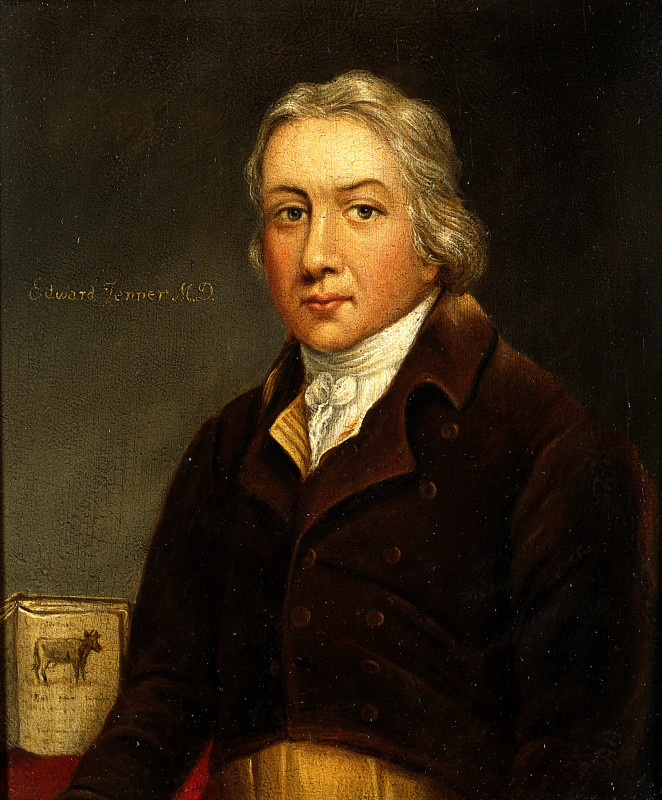
36 minutes ago CDC Panel to Discuss COVID Vaccine Injuries Following RFK Jr.'s Meeting

2 hours ago Casey Means' Surgeon General Nomination Faces Scrutiny Over Mainstream Medicine Criticism and Birth Control Views.
3 hours ago Punch, the lonely baby monkey, goes viral and wins hearts worldwide.
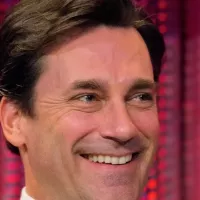
4 hours ago Jon Hamm Discovers Viral Dancing Meme; Reacts to Meme-Worthy Status at 54.
Popular

Jesse Jackson is an American civil rights activist politician and...

Barack Obama the th U S President - was the...

Susan Rice is an American diplomat and public official prominent...

XXXTentacion born Jahseh Dwayne Ricardo Onfroy was a controversial yet...

Michael Joseph Jackson the King of Pop was a highly...

Kashyap Pramod Patel is an American lawyer who became the...
